MIFUMI Publications
MIFUMI has published a four-part connected series of companion documents:
A Counsellor’s Companion: A MIFUMI Manual for empowering women out of violence and abuse
The Caseworkers Companion: A MIFUMI manual for supporting key domestic violence services
The Duty Bearers Companion: A MIFUMI manual on domestic violence
The Duty Bearer’s Companion for Health Professionals: Strengthening the responses to domestic violence.
If you require any more information please contact MIFUMI.
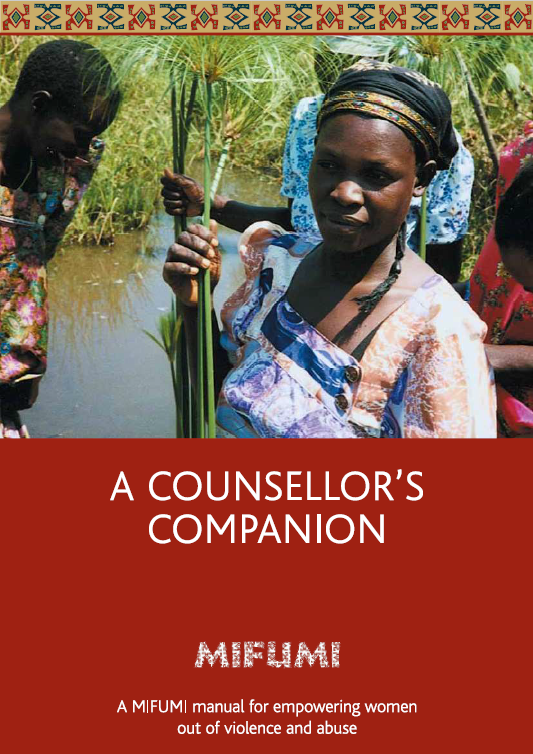
A counsellor's companion
A Counsellor’s Companion is a vital resource for any professional interested in the guiding principles and values that help to empower women to lead violence-free lives. It is the essential guide for Independent Domestic Violence Advisors offering counselling support services for women experiencing violence and abuse in the community. This manual will promote the quality of services delivered to women and children who are facing violence and abuse. It includes information on awareness of violence and abuse against women and the skills for effective counselling. This manual is intended as a key reference point intended to professionalize and standardise the delivery of counselling support services. The Advisors Companion will be a useful reference for NGO staff, Independent Domestic Violence Advisors, Psycho-Social Counsellor, Health Practitioner and Local Councillors supporting women. The aim of the manual is to develop counselling support services for women experiencing violence and abuse in the community. This is in order to promote the quality of services delivered to women and children who are facing violence and abuse.
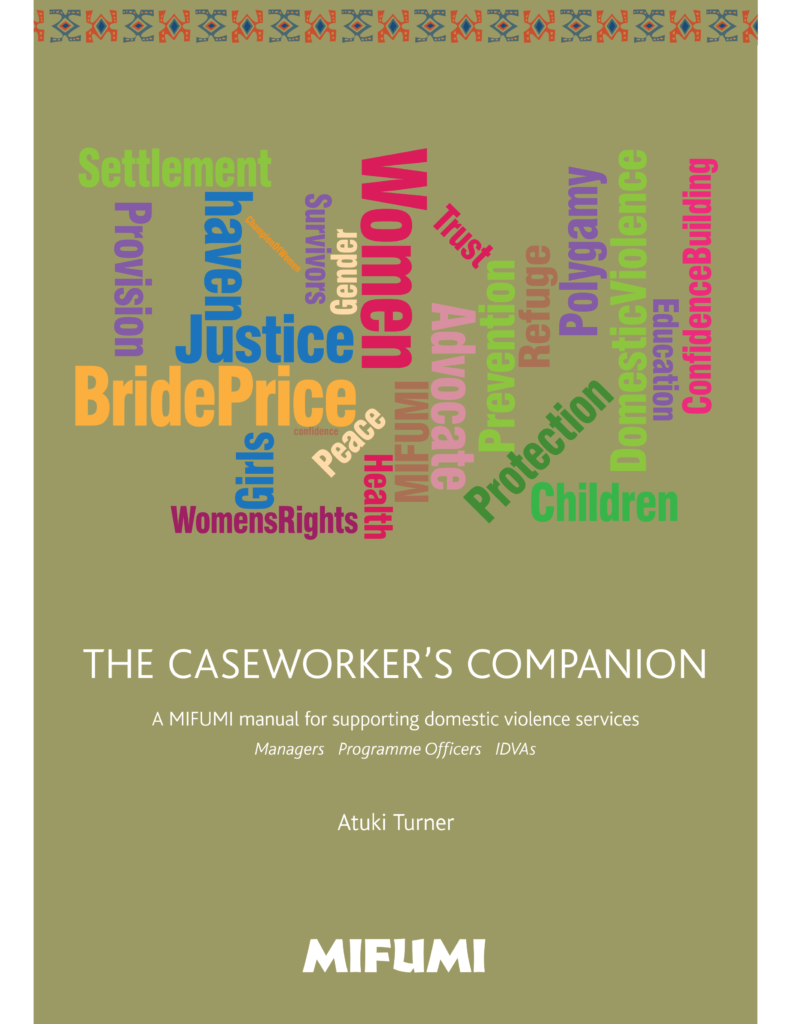
The caseworker's companion
The Caseworkers Companion is the second comprehensive training manual on domestic violence produced by MIFUMI. The Manual can be used as a tool by caseworkers and legal officers as it provides information on key services for women and the necessary training on how to support survivors of domestic violence and help them secure justice from the criminal and civil justice system.
This companion covers training on how to receive, counsel and refer patients while meeting their appropriate needs. It also presents well-researched and internationally accepted standards on domestic violence training and draws on knowledge gained from 20 years of work with women in Uganda.
Based on several years of experience of MIFUMI’s work through survivors shelters and advice centers, we understand that survivor-centers are often the first port of call for many women who suffer abuse and, therefore, this manual provides the adequate procedures needed for caseworkers, paralegals and legal officers to help women centre their journey to empowerment and exercise their right to a life free of violence.
It has been of great importance for MIFUMI to produce this body of work because of MIFUMI’s unique position as a grassroots, woman-centric and home grown agency that understands the histories and context in which women and girls weave their lives and negotiate strategies to resist violence.
Click here to buy
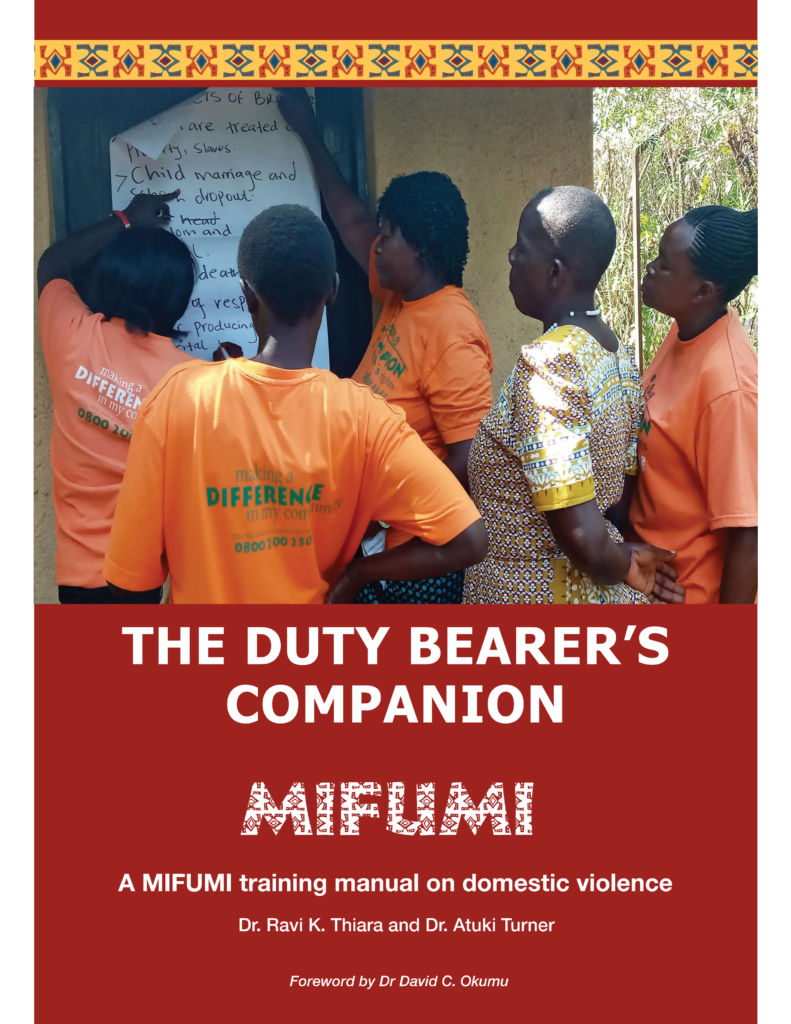
The Duty Bearer's Companion
The Duty Bearer’s Companion is the first comprehensive training manual on domestic violence produced by MIFUMI. The Companion can be used as a tool by caseworkers or anyone interested in ending abuse against women as it provides information on key services for women and on the impacts of domestic abuse. It also provides the necessary training on how to receive survivors of domestic violence and help them seek justice. This companion also has a specialist section on the harmful practice of Bride Price and is known to be the only training manual that offers training in this field.
Based on years of experience from the MIFUMI Survivor shelters and advice centers, we understand that survivor-centers are often the first port of call for many women who suffer abuse and therefore this manual provides the adequate procedures needed for caseworkers and legal officers to help women centre their journey to empowerment and a life free of violence. This companion also presents well-researched and internationally accepted standards on domestic violence training and draws on knowledge gained from 20 years of work with women in Uganda.
Click here to buy
More information click here.
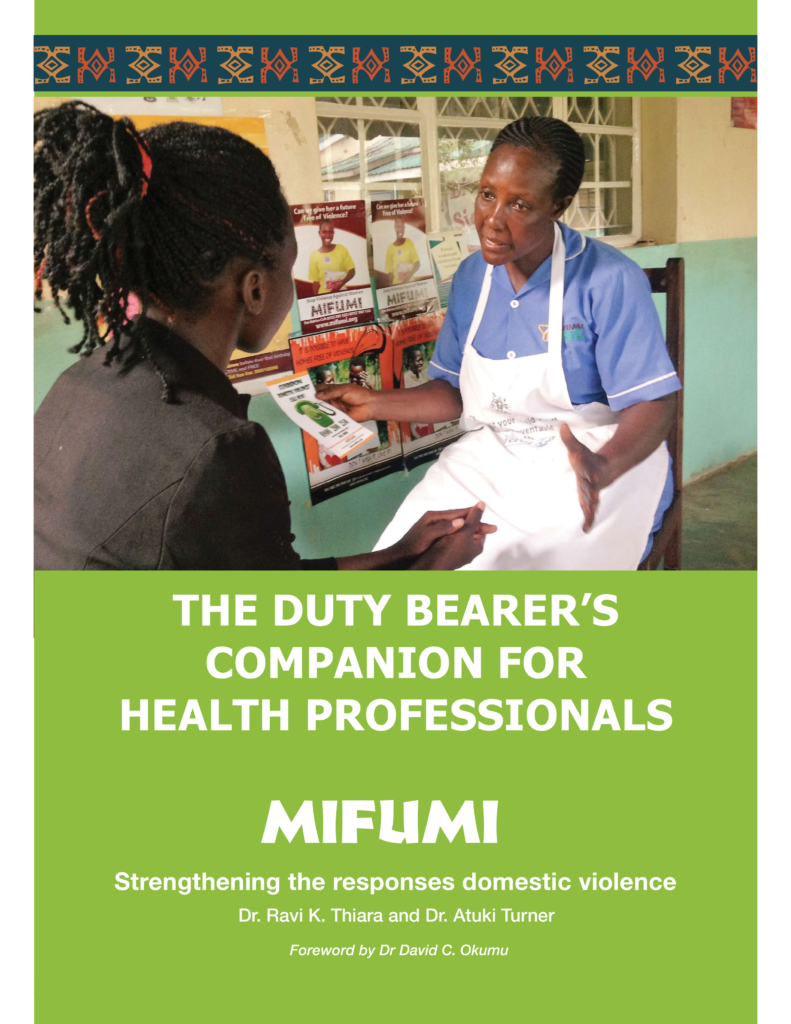
The Companion for Health Professionals: Strengthening responses to domestic violence
The Companion for Health Professionals is a comprehensive training manual on domestic violence produced by MIFUMI. The Manual can be used as a tool by health professionals and practitioners as it provides information on key services for women, and the necessary medico-legal referrals to survivors of domestic abuse.
This companion covers training on how to screen, counsel and refer patients while meeting their appropriate needs. Based on years of experience from working with survivors of abuse and from the MIFUMI Health Centre, we understand that the health units are often the first port of call for many women who suffer abuse, therefore this manual provides the adequate procedures needed for health workers to support women and centre their journey against domestic violence.
More information click here.
Click here to buy
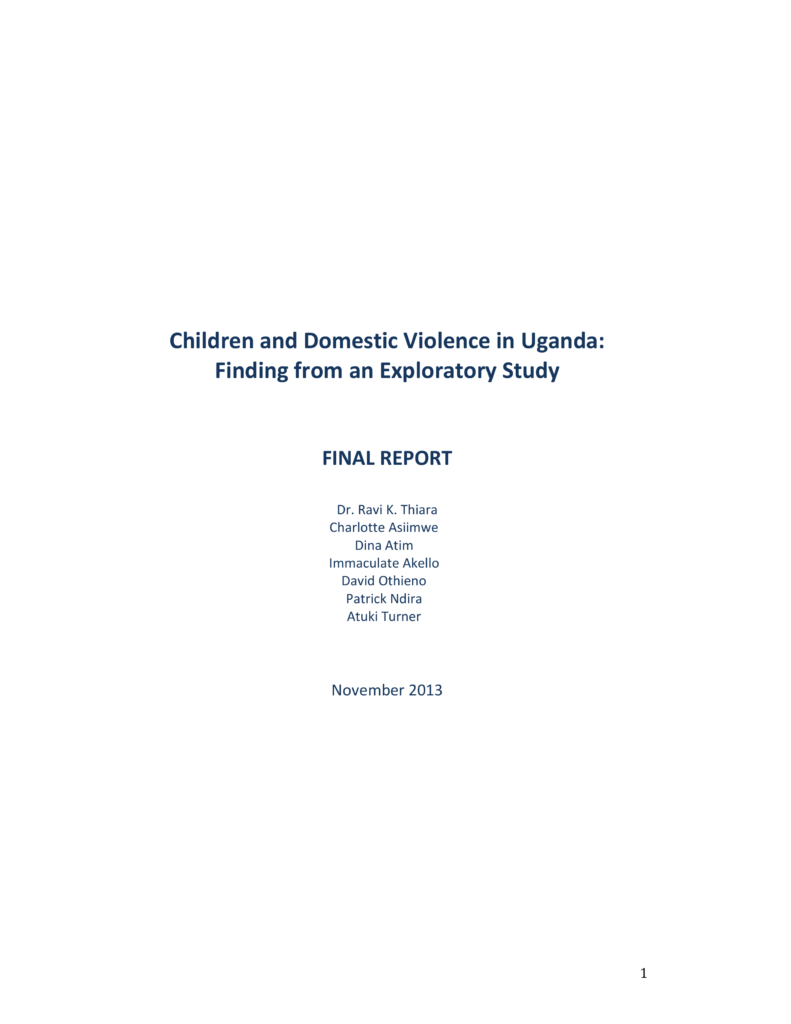
Research on children and domestic violence:Report
Violence against women (VAW) has globally been recognised as a serious social and human rights issue, which affects all societies and communities (FRA, 2014; WHO, 2013). Its consequences for victim-survivors are immeasurable, not only in terms of personal injury, disability and death, but also in severely limiting their contribution to social and economic development. For many women in Uganda, like in many other African countries and elsewhere, domestic violence is not an isolated and abnormal act, but is sadly an every day experience. The Uganda Demographic and Health Survey (2006) indicated that two thirds of Ugandan women experience violence from their partners. The Uganda Police Reports (2011) and UWONET Periodic Reports (2012) indicated that sexual offences against women and girls top the list of crimes in Uganda. The most common forms of violence include beating, pushing, dragging, forced sex, arm twisting, threatening, insulting and choking. A study on gender based violence (GBV) by PLAN (2011) showed that 78.9% of respondents had experienced at least one form of GBV in the 12 months preceding the survey.
